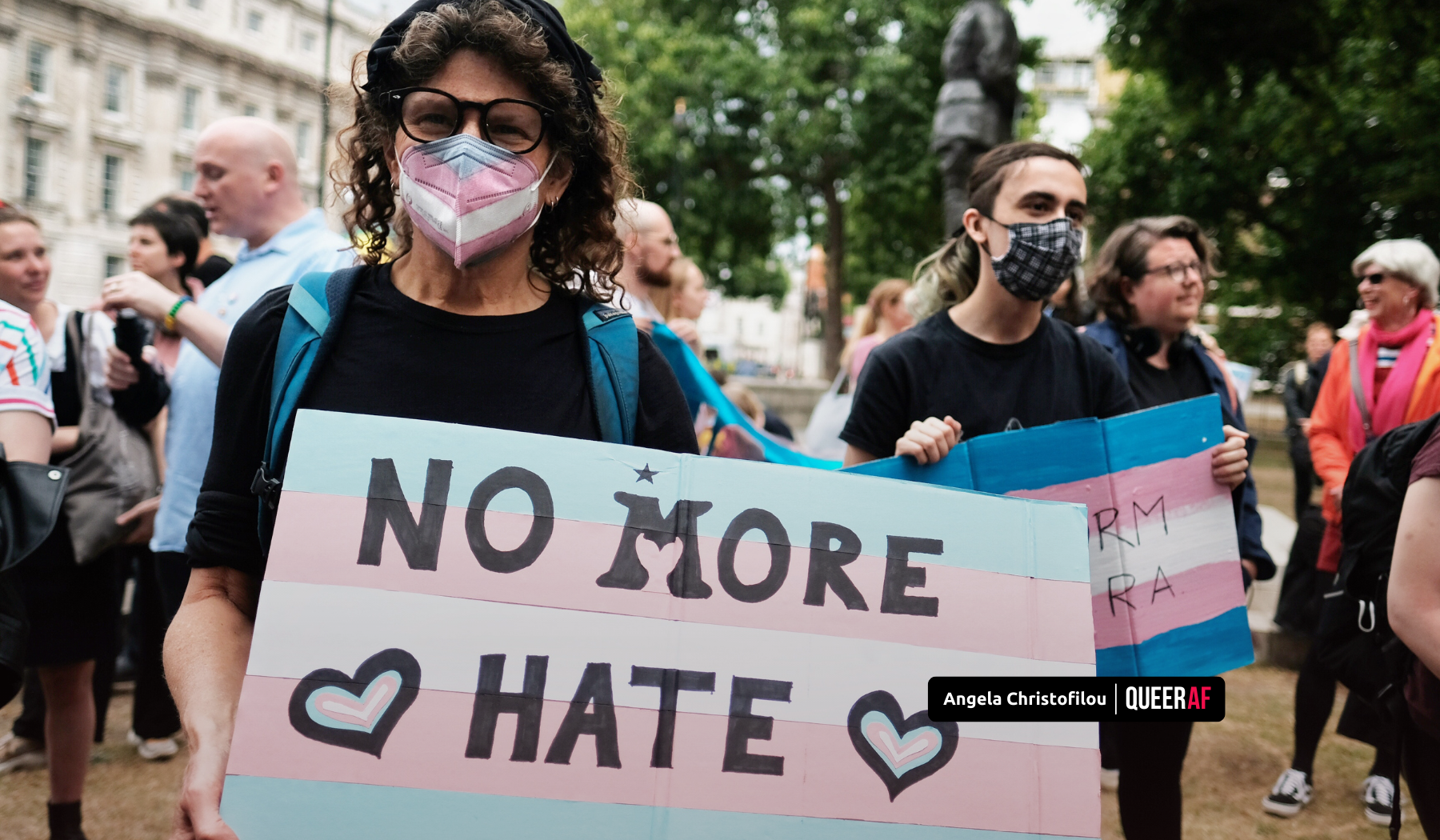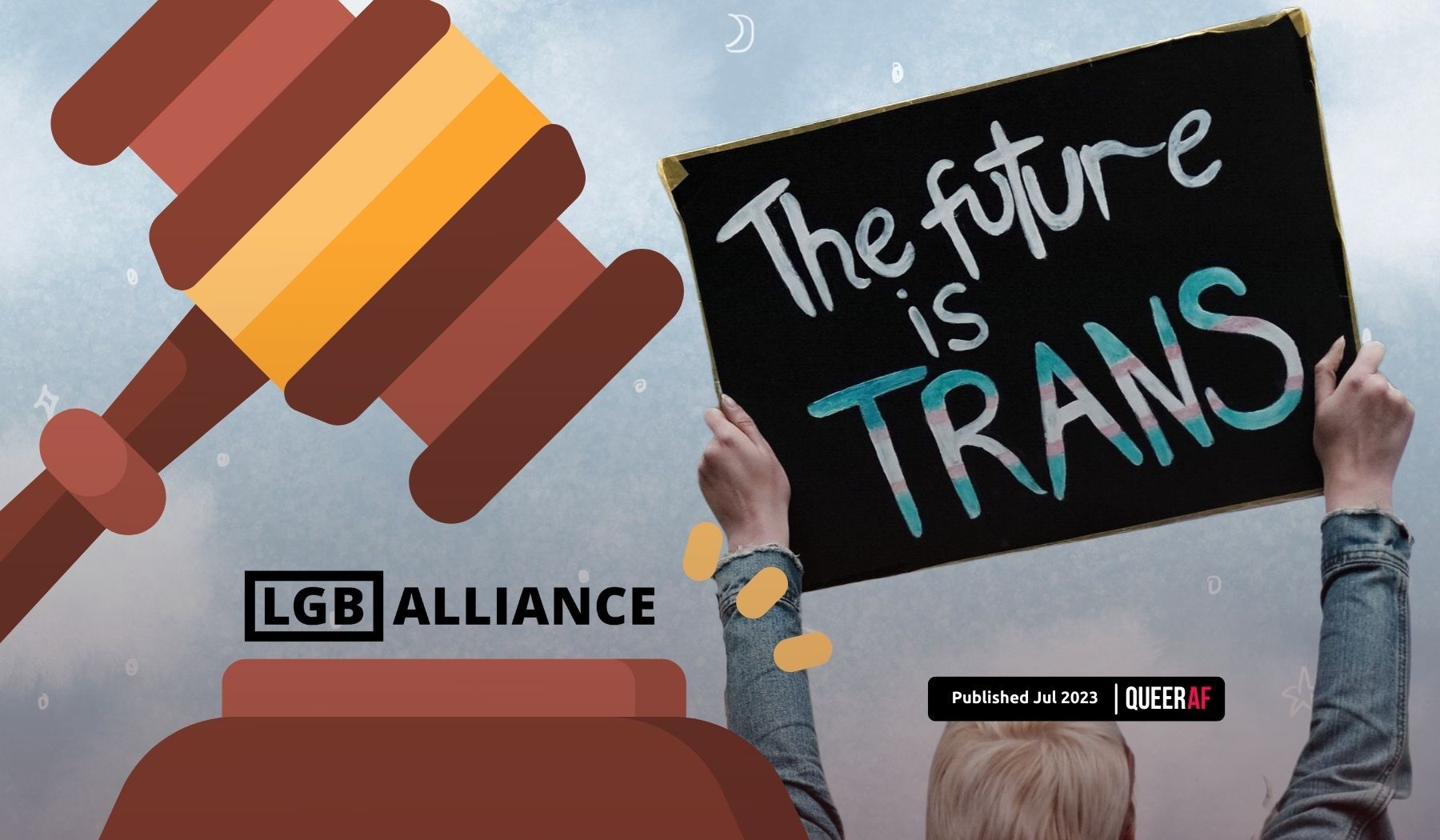TL;DR: A court ruled that because Mermaids didn’t have “legal standing” for it’s a case to strip LGB Alliance of it’s charitable status. It was dismissed, but the ruling isn’t all good news for the pressure group as judges agreed with some of Mermaid's case.
Mermaids said this week that, despite their case against the LGB Alliance being dismissed over a legal technicality, the outcome still "puts a huge question mark" over LGB Alliance’s charitable status.
Mermaids, a charity for transgender, nonbinary and gender-diverse children and their families, took unprecedented legal action in an attempt to strip the trans-exclusionary LGB Alliance group from the charity register. It's believed to be the first case of its kind - The Telegraph
The case supported by the Good Law Project was dismissed this week, not over the core concepts of the appeal but over a legal issue.
The judges ruled that Mermaids had no "legal standing" to bring the case; therefore, the merits of each side's arguments were ultimately not ruled on.
This essentially means the judges decided it wasn't Mermaid's place to bring this case to court so that they wouldn't rule on it - Attitude
Significance of court case against LGB Alliance
The case over the LGB Alliance was intended to be about whether it was misusing its charitable status.
The two judges indicated that, despite deciding it wasn't for them to make a ruling, they did discuss the arguments from both sides.
They said they were "split" on the answer. Mermaids say this means one of the judges agreed that LGB Alliance should not have been registered as a charity, and one disagreed - Mermaids
The Charity Commission has since said that the case confirms "it is not the Charity Commission’s role to regulate public debate" The Charity Commission is one of many once-independent bodies now run or chaired by former Conservative or Conservative-appointed grandees.

Who are the LGB Alliance?
Despite purporting to be focused on 'LGB' rights, they are a trans-exclusionary pressure group that speaks mostly about curtailing trans rights.
They were co-founded by Allison Bailey, Bev Jackson, Kate Harris, Malcolm Clark and Ann Sinnott. Kathleen Stock, who recently set up the trans-exclusionary Lesbian Project, was also a trustee for the group.
The group opposes banning conversion therapy for trans people in the UK and gender recognition reform. They have campaigned heavily against the Tavistock clinic, the UK's only youth gender identity clinic, and any form of gender-affirming care for young people.
Their leaders called for gay bars to be closed during last year's MPOX outbreak and perpetuated harmful 'groomer' narratives by calling for LGBT clubs in schools to be banned because of "predatory" gay teachers.
It was also recently revealed they have offices in the notorious 55 Tufton Street building, where a number of right-wing and libertarian think tanks base their work - Open Democracy
Analysis: If the case had been discussed on its merits, there could have been a very different outcome
Mermaids always knew it was on shaky ground over the "legal standing" of this case. Ultimately the judges decided they didn't have any.
However, if they had - with a split in opinions from the judges, there is every chance that punitive measures could have been brought against the LGB Alliance.
And while there was no definitive ruling, key points of Mermaid's evidence were accepted by both judges. There was agreement that some LGB Alliance social media output went beyond the boundaries of civilised debate and that the group had done little work to progress its official charitable aims.
The case didn’t make it through court - but it has united the LGBTQIA+ third sector. It shows that the LGBTQIA+ community will not be split by a small and fractious group, however vocal they are.

Twitter was already a tough place for us to promote queer information that serves our community justice.
It used to be a platform where we could grow this newsletter.
Where we could expand our reach to tackle disinformation about LGBTQIA+ lives.
Where we could support QueerAF creatives.
It's not anymore.
This week's turmoil on the platform has left us with even fewer resources to get our content out there and even more emerging platforms to take our efforts to.
QueerAF can adapt to this new reality and continue to thrive, but we need your help.
We have 2000+ email subscribers. If a few more readers upgrade to paid, QueerAF can:
- Invest in alternative growth strategies to spread our journalism further
- Produce more queer journalism that you're in control of
- Support marginalised queer creatives to work in and change the media industry
If you can, please help us help you and hundreds of other LGBTQIA+ folk skip the doomscrolling.
Help us deliver calm, balanced and nuanced coverage of information vital to our community.












